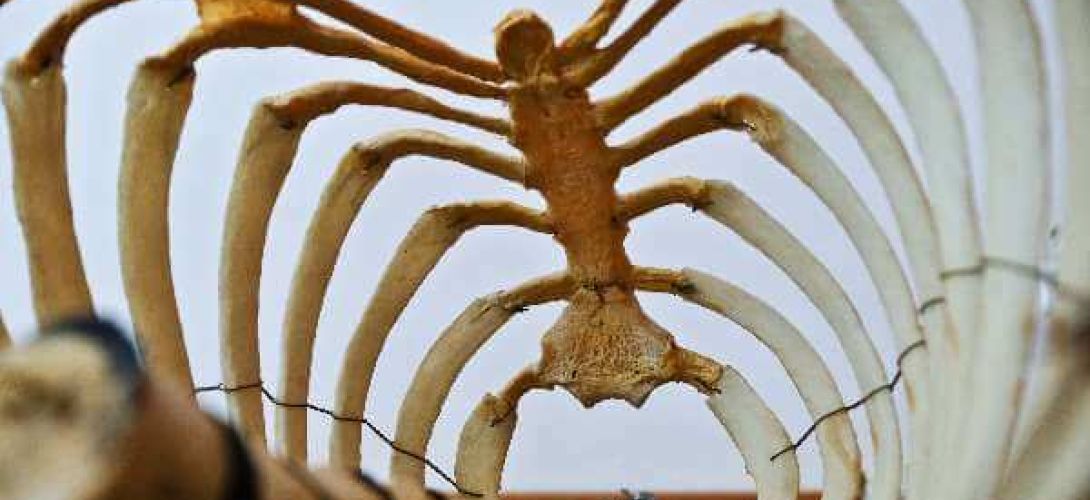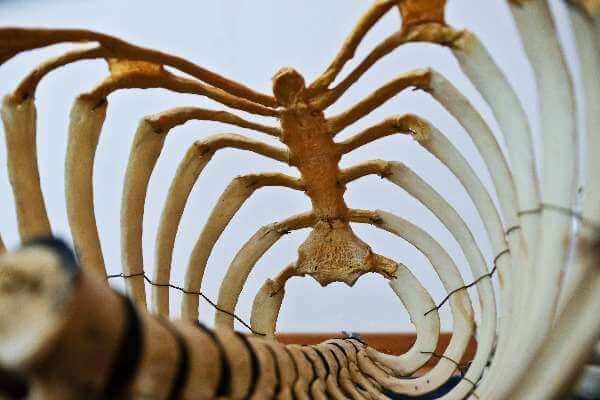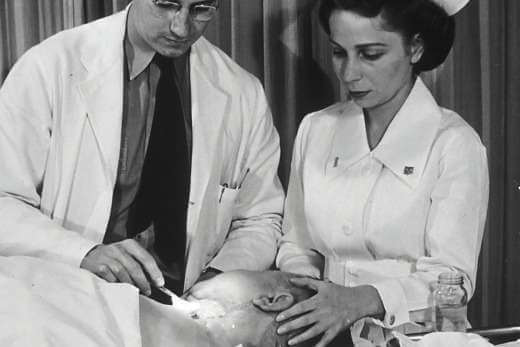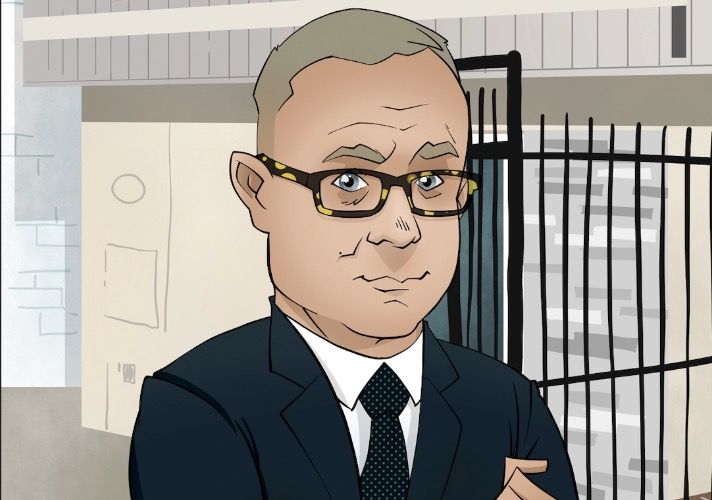
Who Treats Spinal Cord Injuries?

Who Treats Spinal Cord Injuries?

Your health care is a priority when it comes to dealing with damage to the spine or any neurological system; however, an effective spine injury lawyer is essential to ensure that you get the compensation you deserve.
Our legal services ensure that you receive the compensation necessary for various personal injury cases.
We empathize with clients during times of difficulty; therefore, you can trust us to win your case, as we have won more than $150 million on behalf of previous clients.
Treating Spinal Cord Injuries

Spinal Cord Injury Diagnosis
What is a spinal cord injury? A doctor can rule out the probability of a spinal cord injury, brain damage, or spinal stenosis via careful examinations and inspections in the emergency room. The professional expert tests the patient for sensory function and movement while inquiring about the accident.
Suppose the issues the patient experience relating to neck pain, have an evidential neurological injury or weakness, or is not entirely awake. In that case, the medical expert may need to run a few emergency diagnostic tests.
What do these tests consist of? They include:
- Magnetic Resonance Imaging (MRI) – This test uses a powerful magnetic field and radio waves to develop various computer-generated images. An MRI is helpful when doctors need to look at the spinal cord to identify blood clots, herniated disks, or any other factors that could compress the spinal cord.
- X-Rays – Medical experts use x-rays on people they believe are hurt after experiencing trauma. This test can indicate spinal cord or vertebral issues, fractures, tumors, or any degenerative changes in the spine.
- Computerized Tomography Scans (CT Scans) – This test often indicates abnormalities identified on an x-ray more clearly. A CT scan uses computers that form a collection of images that highlight the disk, bone, and any other health-related issues.
Specialists often conduct further comprehensive neurological exams several days after the trauma or injury to determine the damage’s severity. During this test, doctors examine your muscle strength and responsiveness toward light, touch, and specific sensations to determine the necessary treatment and occupational therapy. Specialists conduct these days after this period because the swelling often subsides after this timespan.
Spinal Cord Injury Treatments
Specialists cannot reverse any damage done to the spinal cord or brain; however, researchers are constantly working on new and advanced treatments, such as medicine and prostheses, that could promote nerve cell regeneration or positively impact the way the nerves and muscles function after the injury.
However, while this is still in progress, current spinal cord treatment emphasizes preventing further injury to the spine and encouraging patients to continue living a productive and active lifestyle. Unfortunately, there is still not much medical treatment available to assist with muscle or nerve regeneration.
Emergency Procedures
A patient requires urgent medical treatment to reduce the effect of neck or head trauma or brain injury. Hence, specialists need to treat spinal injuries from the incident scene.
Emergency medical specialists immobilize the spine quickly and gently with a stable carrying board and rigid neck collar. They use these items to transfer the patient to the hospital or clinic.
Early Stages to Treat Spinal Injuries
A doctor usually focuses on the following to treat a brain or spine injury in the emergency room:
- Preventing the patient from going into shock
- Maintaining the patient’s ability to breathe
- Immobilizing the neck to reduce the risk of further damage to the brain, spine, or muscle
- Avoidable complications include vein blood clots, cardiovascular or respiratory challenges, urine retention, or stool.
Specialists generally admit patients to the intensive care unit when treating brain or spinal injuries. Additionally, the hospital may transfer the patient to a regional spine injury clinic or center where a team of spine medicine specialists, neurosurgeons, psychologists, orthopedic surgeons, therapists, nurses, and social workers work together to treat the patient. This rehabilitation team has extensive knowledge regarding brain and spinal injuries and effective health treatment options.
- Immobilization – Patients often need traction to stabilize and realign the spine. A rigid neck collar or unique bed is often helpful.
- Medicine – Previously, specialists used intravenous methylprednisolone to treat people with spine injuries. However, recent research and health information shows that this has possible side effects such as pneumonia and blood clots.
- Spinal surgery – Surgery can be necessary to remove foreign objects, herniated disks, bone fragments, or fractured vertebrae that may compress the spine. People also require surgery to stabilize the spine and prevent deformity in the long term and future pain.
- Experimental treatment – People need to ask their doctors about the options available as professionals are constantly identifying new forms of treatment. An example is that scientists are trying to determine ways to control inflammation, stop cell death, and promote muscle regeneration.
Continuous Spinal Care
It is crucial that people take the necessary health steps after the initial spinal injury or spinal stenosis to prevent any secondary issues such as muscle contractures, reconditioning, bladder and bowel problems, blood clots, respiratory infections, and pressure ulcers.
Hospitalization and rehabilitation depend on patients’ specific health conditions and medical issues. Specialists often transfer patients to a rehabilitation facility once ready to participate in physical therapy and treatment.
Rehabilitation
A rehabilitation team starts to work with patients during the early stages of recovery. The group often consists of an occupational therapist, physical therapist, rehabilitation psychologist, rehabilitation nurse, recreation therapist, dietician, social worker, and specialist in physical medicine or spine injuries.
During the early stages of treatment, a physical therapist and occupational therapist work together to strengthen muscle and nerve functions, redevelop the person’s fine motor skills, and learn how to adapt to continue with daily activities.
Specialists educate patients on the effects of brain and spinal injuries, spinal stenosis, and how to prevent further complications in the long run. Rehabilitation or treatment includes teaching patients how to increase their quality of life and rebuild their health and independence.
Patients learn new skills and how to use specific equipment and technology to help them live independently. Rehabilitation, which includes physical medicine, occupational therapy, physical therapy, health information, and treatment, encourages patients to continue with their hobbies, fitness, social activities, and work or school.
Medicine Used to Treat a Spine Injury
Doctors use medication to work together with therapy and treatment to manage the injury’s or damage’s impact. The medicine is for the treatment of muscle spasticity and pain. It is also possible to get medication to assist patients with their sexual function, bladder control, and bowel control.
Advanced Technology
Medical or health devices are available to assist patients with improving their mobility and improving their quality of life.
A few medical devices also help to restore function. These include:
- Advanced wheelchairs – Manufacturers adapted wheelchairs to be lighter and have improved functionality, which is convenient and more comfortable for patients experiencing physical damage or pain to the spine or other nerves. Newer models can often climb stairs or elevate patients to desired levels.
- Daily living electronic aids – People develop these devices for patients who need extra assistance or treatment in the form of voice control and computer-based remotes.
- Computer adaptations – A computer is a powerful tool but challenging for individuals with limited physical hand function. These adaptation devices can be simple or complex and may offer various medical or health features such as voice recognition or keyguards.
- Electric stimulation devices – This medical health system makes use of electrical stimulation to function for efficient treatment. The electrical stimulation system controls the muscles in the victim’s arms and legs to help them stand, walk, hold things, and reach for items after experiencing damage to the spine, brain, or neurological function.
- Robotic gait training – This type of emergency technology teaches patients how to walk again after they suffer spine, neurological, or other physical damage.
Recovery and Prognosis
Specialists cannot always provide patients with a medical or health prognosis immediately. Recovery from a spine injury usually occurs between a week and six months after the injury. People can see minor improvements in their health between the one and two-year period.
Clinical Trials
Professionals continue to discover various medical or health treatment options, tests, and interventions to detect, control, treat, or prevent a spine, brain, or neurological condition or diagnosis.
Support and Coping Mechanisms
A spine accident that leaves patients paralyzed is a life-altering experience. Getting an impairment can be terrifying and perplexing, and adjusting is no simple job. Patients worry about how their spine injury and neurological disorders can affect their health, daily routine, work, relationships, and future happiness.
It takes time to heal from this type of occurrence or pain, but many paralyzed individuals live productive and fulfilling lives. It is critical to remain motivated and get the required help.
Stages of Grieving
Injured people go through a time of grieving and sorrow. Although people grieve differently, denial or disbelief is standard, followed by sorrow, rage, negotiation, and eventually acceptance.
Grief is a natural and safe part of the healing process. It is normal — and necessary — to mourn the loss of one’s former self. However, people must still set new goals and find a way to move on with their lives.
Patients are most likely concerned about how the accident impacts their health, lifestyle, finances, and relationships. Grief and emotional stress are both natural and shared experiences.
Suppose depression and anxiety interfere with medical treatment, isolate the person from others, or lead people to misuse alcohol or other medications. In that case, one should speak with a social worker, counselor, or therapist. Patients may also benefit from joining a health support group for individuals who have suffered an injury to their spine.
Talking with people who understand what patients are going through can be energizing, and group members can be able to provide helpful suggestions about how to change areas of their health, home, or workplace to best suit their current needs. Inquire with doctors or recovery therapists about local support groups.
Taking Control of the Situation
Learning about spine damage and the medical choices for reclaiming independence is one of the best ways to reclaim control after an accident. A variety of equipment is available to assist individuals with this.
The same applies to home improvement items. Patients can live more independently with ramps, unique sinks, wider doors, grab bars, and convenient doorknobs.
Since the medical expenses of a spine injury can be daunting, patients can see whether they qualify for financial aid or treatment programs from the state or federal government and charitable organizations. Our law firm is here to help you take care of this—the recovery group assists in locating local services.
Communicating with Others
Friends and family members can react to a disability in various ways. Some people may feel uneasy and uncertain regarding whether they are saying or doing the right thing.
It is beneficial to be knowledgeable about spine damage and to share that knowledge with others. Children are naturally curious, and if you answer their questions concisely, they often respond quickly. Adults can profit from knowing the truth as well.
Patients should be open about explaining how the spine injury affects them and what their family and friends can do to help. Additionally, do not be afraid to mention it if friends and family members are assisting you excessively. While it may be painful at first, discussing the accident with family and friends helps reinforce bonds.
Looking at the Future
An injury to the spine, by its’ very nature, has an immediate effect on a person’s way of living and the lives of those closest to them. When patients first learn of their medical diagnosis, they can begin to make a mental list of everything they can no longer do. However, once people understand the injury, treatment, and recovery choices, they know how much they can accomplish.
Due to new technology, therapy, and devices, patients with spine and nervous system damage can now play sports and compete in other physical activities. They can live normally and enjoy the finer things they thought they could no longer.
Individuals with spine or muscle damage can now hope for a better recovery thanks to developments in stem cell science and nerve cell regeneration.
Nobody knows about the accessibility of new treatment options, but everyone should be optimistic about the future of the science of the spine while enjoying their lives.
Preparing for Appointments
An injury to the spine and other related emergencies, such as muscle or brain injury, is extremely traumatic, especially because patients often cannot participate in their therapy or treatment during the early stages.
A group of healthcare professionals helps to stabilize the patient’s condition. These professionals include doctors specializing in the nervous system and neurological disorders and a surgeon specializing in spine injuries and other nervous system conditions. Other medical professionals are involved in the procedure; however, these are two of the most crucial.
Doctors then redirect patients to specialty rehab teams for further treatment and therapy.
How to Prepare
Patients must prepare and have the necessary information relating to the events of the injury to the body, including both direct and indirect information. Additionally, it may be beneficial to go to the health professional with a relative or close friend who can help recall the events of the accident. When dealing with trauma, it can be challenging to remember all the finer details. Patients may also find it helpful to write down any doctor questions.
Essential information to obtain from the doctors includes:
- The diagnosis and prognosis
- Various short-term and long-term treatment options are available
- Side effects associated with the treatment
- The benefits of receiving surgery
- Whether patients require a physical therapist
- Beneficial forms of occupational therapy and rehabilitation
- Alternative approaches to treatment
- They researched the specific spine condition
- Brochures, physical material, or websites with available information on the condition and therapy.
What to Expect from Doctors
Doctors often require the following information from patients:
- The circumstances that resulted in the injury
- When the injury occurred
- What work and social activities the person participates in
- Who the patient lives with
- The housing situation – Are there stairs?
- Additional medical conditions
- If there is a history of clots in the family.
Contact Us for a Los Angeles Spinal Cord Injury Attorney
Our law firm promises to assist all patients whose body was severely injured in an accident, whether it is regarding their spine, brain, neck, or neurological system. We have countless satisfied clients who received compensation for treating their spine, brain, and nerve damage. Have you experienced any damage to your spine, brain, neck, or nervous system as a result of an accident? Call us at (213) 596-9642 for a free consultation at our Los Angeles law firm.
Schedule a Free Consultation Online With Serious Injury Lawyer Today
Alternatively, you can use the online consultation form for a quicker response regarding legal advice for the damage done to your spine, brain, muscles, or nerves. Our compassionate, friendly, and charismatic lawyers are ready to help you and all accident victims get justice for the injury and harm done to their bodies.
Categories
- A to Z Personal Injury Podcast
- Car Accident
- Government Tort Blog
- Insurance Law Blog
- Piloting and Aviation Accident Blog
- Premises Liability Blog
- Products Defect Blog
- Recreation-Sports Accident Blog
- Reports
- Service Related Cancer Blog
- Sexual Assault Blog
- Spinal Cord Injury Blog
- Torts, Examples, Explanations
- Train Accidents Blog
- TV, Media & Firm News
- Uncategorized
Firm Archive
Main Los Angeles Location


Michael Ehline
Michael Ehline is an inactive U.S. Marine and world-famous legal historian. Michael helped draft the Cruise Ship Safety Act and has won some of U.S. history’s largest motorcycle accident settlements. Together with his legal team, Michael and the Ehline Law Firm collect damages on behalf of clients. We pride ourselves on being available to answer your most pressing and difficult questions 24/7. We are proud sponsors of the Paul Ehline Memorial Motorcycle Ride and a Service Disabled Veteran Operated Business. (SDVOB.) We are ready to fight.
